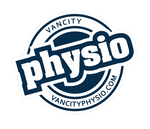Sports injuries are common occurrences in the world of athletics, affecting both amateur and professional athletes. Physiotherapy plays a crucial role in the prevention, treatment, and rehabilitation of sports-related injuries. This guide aims to provide comprehensive information on various sports injuries and how physiotherapy can help in managing them effectively.
Types of Sports Injuries
1. Muscle Strains and Sprains:
* Muscle strains involve the stretching or tearing of muscle fibers, often occurring due to sudden movements or overexertion.
* Sprains refer to the stretching or tearing of ligaments, which are the tough bands of tissue connecting bones to each other.
* Commonly affected areas include the hamstring, quadriceps, calf muscles, and ankle ligaments.
2. Joint Injuries:
* Joint injuries, such as dislocations and subluxations, occur when the bones comprising a joint are forced out of their normal positions.
* These injuries are frequently observed in sports involving high impact or repetitive motions, such as football, basketball, and gymnastics.
3. Tendonitis:
* Tendonitis is the inflammation of tendons, which are the thick cords that attach muscles to bones.
* Overuse or repetitive motions can lead to tendonitis, causing pain, swelling, and restricted movement in the affected area.
4. Fractures:
* Fractures, or broken bones, can result from traumatic impacts or excessive stress on the bones during sports activities.
* Stress fractures, caused by repetitive force on a bone, are common in runners and athletes engaged in high-impact sports.
5. Cartilage Injuries:
* Cartilage injuries involve damage to the tough, flexible tissue that cushions the joints and enables smooth movement.
* Conditions like meniscal tears in the knee joint are prevalent among athletes, particularly those involved in sports requiring pivoting and sudden changes in direction.
Role of Physiotherapy in Sports Injury Management
1. Assessment and Diagnosis:
Physiotherapists conduct thorough assessments to diagnose the nature and extent of the sports injury, considering factors such as the athlete's medical history, symptoms, and physical examination findings.
Physiotherapy interventions, including manual therapy, modalities like heat and cold therapy, and therapeutic exercises, help alleviate pain and discomfort associated with sports injuries.
3. Restoration of Function:
Through targeted exercises and rehabilitation programs, physiotherapists aim to restore optimal function and mobility to the injured area, promoting tissue healing and preventing further complications.
4. Prevention Strategies:
Physiotherapists educate athletes on proper training techniques, biomechanics, and injury prevention strategies to minimize the risk of recurrent injuries and enhance athletic performance.
5. Return to Sport Rehabilitation:
Physiotherapists work closely with athletes throughout the rehabilitation process, gradually reintroducing sports-specific activities and ensuring a safe return to competitive play or training.
6. Manual Therapy and Hands-on Techniques:
Manual therapy techniques such as massage, joint mobilization, and soft tissue manipulation help improve flexibility, reduce muscle tension, and enhance circulation to facilitate the healing process.
7. Functional Training:
Functional exercises tailored to the demands of the athlete's sport aid in improving strength, stability, balance, and proprioception, thereby reducing the risk of future injuries.
Physiotherapy is an integral component of sports injury management, offering personalized treatment approaches to address the unique needs of athletes across various sports disciplines. By combining evidence-based interventions with specialized knowledge and expertise, physiotherapists play a vital role in promoting recovery, optimizing performance, and ensuring the long-term health and well-being of athletes.


